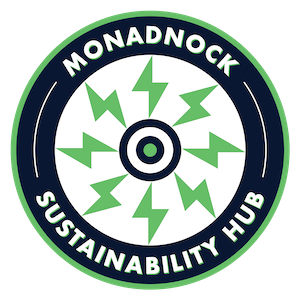While many of us are glad to see this past winter end, it was supposed to be a very expensive year with warnings of natural gas shortages after the previous year’s experience. Energy markets braced for power costs of $184/megawatt hour, in spite of this winter being colder, energy costs averaged only $77/ megawatt hour according to ISO New England. It was colder yet we spent $2.3 Billion less on electricity! While the explanations are complex, the chief operating officer of ISO New England commented “The worst is ahead of us. As operators of the grid, we continue to be nervous about fuel security.” Many of our neighbors are resisting a proposed gas pipeline though their towns that threatens homes, water sources and pristine natural areas. We have to ask our government leaders why electricity ratepayers should fund a new gas pipeline, especially when there are better local options.
The clean energy revolution is happening and News Flash- it creates far more jobs than fossil fuels. In 2012, there were a total of 137,650 permanent coal-related jobs nationwide, and 806,831 oil and gas jobs as of 2011. By contrast according to the Department of Labor, there were 3,401,279 green jobs in 2011. So the green economy already supports more jobs even though renewable energy accounts for only 12% of our domestically produced energy. This fast growing sector of our economy produces good paying jobs that young people want which would help keep more of them here.
The US generated nearly 22 times more electricity from solar power in the most recent 12 months than it did in 2008. One exciting solar development, Community Solar (CS) is just emerging across the United States spearheaded by people seeking local alternatives to conventional energy sources; a hedge against rising fuel costs; reduced carbon emissions; and energy independence. The Monadnock Sustainability Network (MSN) (greenmonadnock.org) formed the Monadnock Community Solar initiative to develop the first CS project on the Monadnock Food Co-op this year. MSN plans to develop a model that can be used by others to pursue a locally owned, clean, renewable energy system on their school, CSA, church or other site in their community.
Thanks to the auto industry, another exciting development is battery storage. Utilities around the world are testing grid connected solar systems with battery storage to address the challenge of sunshine being intermittent. Rising competition from solar panels and battery storage could cut in half the amount of power that traditional utilities in the Northeast sell by 2030, according to the Rocky Mountain Institute. In what their report called “load defection,” residential and commercial customers will increasingly choose solar and solar-plus-battery systems to power their homes and businesses instead of relying on the electric grid.
If 97% of climate scientists are right we need to accelerate reducing our dependence for fossil fuels. Why not use the power of the market to curtail toxic and hazardous pollution? Under the Carbon Fee and Dividend plan developed by the Citizens Climate Lobby a fee is placed on carbon-based fuels at the source (well, mine, port of entry). This fee starts at $15 per ton of CO2 emitted, and increases steadily each year so that clean energy is cheaper than fossil fuels within a decade. All of the money collected is returned to American households on an equitable basis, about 2/3 of all households would break even or receive more in their dividend checks than they would pay in higher prices due to the fee, thereby protecting the poor and middle class. A predictably increasing carbon price will send a clear market signal to entrepreneurs, workers, businesses and homeowners to invest in the new clean-energy economy. A 2014 study by Regional Economic Models Inc. found that a Carbon Fee and Dividend would save hundreds of thousands of lives over 20 years while cutting green house gas emissions in half and ADDING 2.8 million jobs to the economy.
So let’s build on the legacy of preserving a livable world for future generations by supporting a solution to the increasing costs of droughts, rising sea levels and severe storms with a Carbon Fee and Dividend, see citizensclimatelobby.org.
###
John Kondos is a founder of Home-Efficiency Resources, the Monadnock Sustainability Network (whose mission is to promote credible, sustainable practices in the region) and the Monadnock chapter of the Citizens Climate Lobby.
